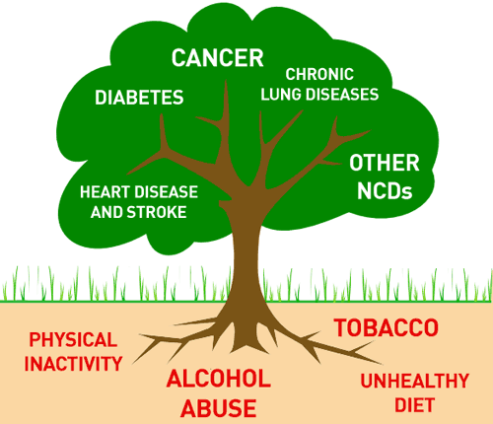Health experts have raised concerns over what they say is the increasing prevalence of Non-Communicable Diseases (NCDs) in urban Ghana.
Physician Specialist, Dr. Gifty Sunkwa-Mills, revealed on Joy Prime’s Prime Morning Show that approximately 54 percent of urban dwellers in the country are living with either hypertension or diabetes.
This significant statistic underscores the urgent need for targeted public health interventions and lifestyle modifications.
The higher prevalence of NCDs in urban areas is attributed to lifestyle factors prevalent among city dwellers.
The cardiologist indicated that these factors include unhealthy diets, sedentary lifestyles, excessive alcohol consumption, and high levels of stress.
"What is known is that, the rates are higher in the urban areas and there are many reasons for that. You could have 40 to 55 percent prevalence in urban areas but in the rural areas, it might be between 28 and 32 percent. The lifestyles are very telling in these statistics," the physician said.
Fast-paced urban living often leads to increased consumption of processed foods high in sugar, salt, and unhealthy fats.
Coupled with a lack of physical activity due to sedentary jobs and the convenience of motorised transportation, these habits contribute significantly to the rising rates of hypertension and diabetes.
"There is very significant underreporting even with these statistics. In Ghana, only 25 percent of persons with hypertension have been diagnosed. So there are 75 percent of people out there who are living with hypertension are don't know. They have not checked and they are walking about," she added.
Other health professionals echo these concerns, pointing out that the lack of green spaces for exercise, limited access to affordable healthy food options, and the stressful urban environment exacerbate the risk factors for NCDs.
In contrast, rural areas of Ghana report lower incidences of NCDs. The rural populations tend to engage more in physical activities through farming and other labour-intensive jobs.
Additionally, diets in rural areas often include fresh produce from local farms, reducing the intake of processed foods.
Dr. Sunkwa-Mills, however, calls for a multi-faceted approach to address this growing health concern. This includes educating urban populations about the risks of unhealthy lifestyles and the benefits of regular physical activity and balanced diets.
Latest Stories
-
SIC Insurance Plc poised for success as it holds its AGM
5 minutes -
“You need to think smarter” – KK Fosu on Fameye’s stage mishap
9 minutes -
LA 2028: Ghana cannot win medal without state support – GAA President
11 minutes -
Legon Cities: Paa Kwesi Fabin offers to resign amidst turmoil
14 minutes -
CHAN 2024Q: Black Galaxies ready to match Nigeria for quality
19 minutes -
We want to know who is funding Mahama’s anti-corruption committee – Afenyo-Markin
25 minutes -
Our legendary boxers deserve statues, not Akufo-Addo – Nii Lante Vanderpuye
32 minutes -
We’ll do honest and impartial work – Ablakwa
33 minutes -
Supreme Court dismisses petition against constitutionality of anti-gay bill
42 minutes -
Checkmate: Unpacking the role of ‘Pawn’ in Ghana’s cinema
49 minutes -
CHAN 2024: ‘There is a bright chance of qualification’ – Didi Dramani on Nigeria clash
51 minutes -
CHAN 2024Q: Black Galaxies coach Didi Dramani ‘refining’ players ahead of Nigeria clash
55 minutes -
Medeama appoints Evans Adotey as head coach until end of season
1 hour -
Nebojsa Kapor leaves Medeama following contract expiration
1 hour -
I was told politics is not for ‘Cantata’ people – Actress Ebi Bright
1 hour

